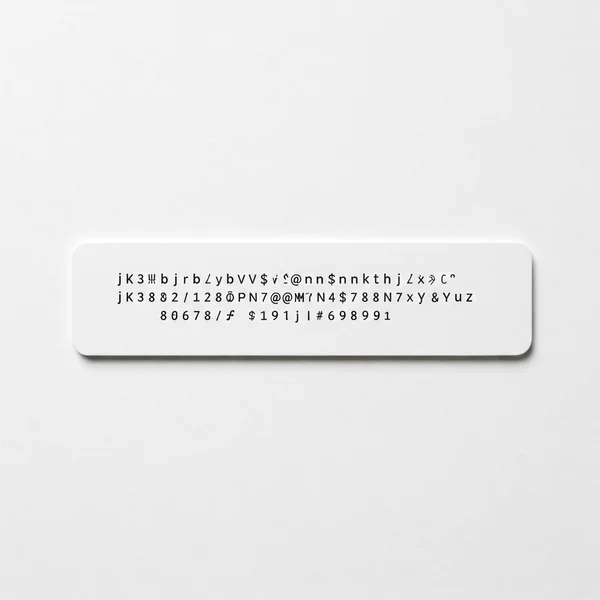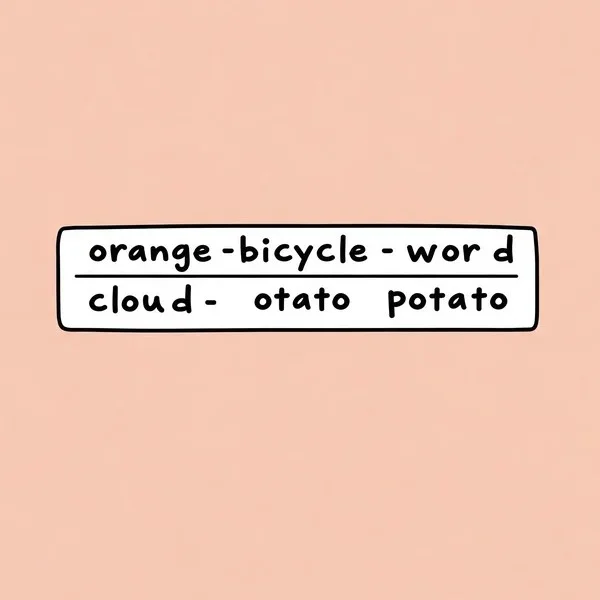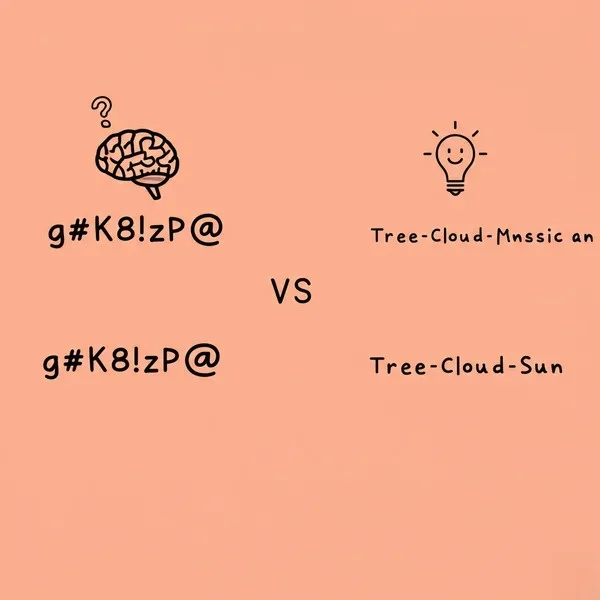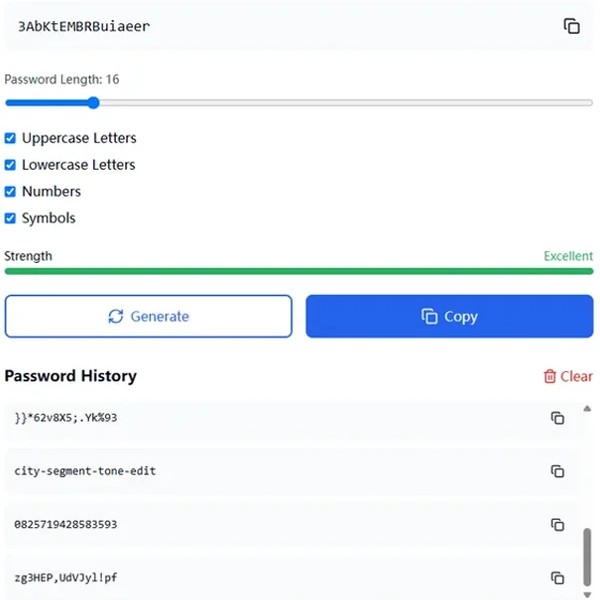Random Passwords vs. Passphrases: Which is Best for You?
You know you need strong, unique passwords for every online account. But when it comes to creating them, you face a common dilemma: should you use highly complex random passwords or opt for easier-to-recall memorable passphrases? Which password type is best for your password security needs? This article will objectively compare these two primary password types, explore their pros and cons, and help you decide which approach is right for different situations. Ready to choose your digital shield wisely? You can explore different password creation options with our tool.
Understanding Random Passwords: The Unpredictability Powerhouse
First, let's break down random passwords. These are the strings of characters that often look like gibberish – a jumble of uppercase letters, lowercase letters, numbers, and symbols. Their strength lies in their sheer unpredictability.
What Defines a Truly Random Password?
A truly random password is characterized by:
- Sufficient Length: Typically 12-16 characters or more.
- Character Mix: Utilizes all four character types (uppercase, lowercase, numbers, symbols).
- No Discernible Patterns: Each character is chosen independently, without relation to dictionary words, personal information, or keyboard sequences. This is what a good random password generator aims to produce.

Pros: Maximum Theoretical Security, Resistance to Dictionary Attacks
The primary advantage of well-generated random passwords is their high resistance to brute-force and dictionary attacks. Because they don't rely on known words, the number of possible combinations an attacker must try is astronomically large, especially with adequate length and complexity. This offers maximum theoretical password strength.
Cons: Difficult to Memorize, Reliance on Password Managers
The biggest downside is memorability. Complex random passwords are virtually impossible for humans to remember reliably for multiple accounts. This necessitates the use of a password manager to store and retrieve them securely.
Best Use Cases for Random Passwords
Random passwords are ideal for:
- High-security accounts (online banking, primary email, password managers themselves).
- Any account where maximum protection against automated attacks is paramount.
- Situations where a password manager is readily available.
Decoding Memorable Passphrases: Security Through Length & Simplicity?
Now, let's look at memorable passphrases. Instead of random characters, these are sequences of words, often randomly selected. Are passphrases secure enough?
What is a Passphrase?
A passphrase is typically a series of 4 or more words strung together, like "CorrectHorseBatteryStaple" – a famous example popularized by the webcomic XKCD (leading to the term XKCD password generator). The idea is that a longer sequence of common words can be as strong, or stronger, than a shorter, complex string, while being much easier to remember. A passphrase generator helps create these using random word lists.

Pros: Easier to Remember, Can Be Very Long and Strong
The main appeal of memorable passphrases is their improved memorability compared to random strings. When generated correctly (using a large, random word list and sufficient length – e.g., 4-6 words), they can offer excellent password strength due to the sheer number of possible word combinations. This makes them an easy to remember password option without sacrificing too much security.
Cons: Potential for Predictable Word Choices if Not Generated Randomly, Shorter Phrases Can Be Weaker
If users create their own passphrases using common phrases, song lyrics, or personally relevant words, they become predictable and much weaker. The security of a passphrase relies heavily on the randomness of the word selection and the length of the phrase. A short, predictable passphrase is not secure.
Best Use Cases for Memorable Passphrases
Memorable passphrases can be a good choice for:
- Wi-Fi network passwords (easier to type into multiple devices).
- Accounts where a password manager might not be convenient.
- Users who struggle significantly with remembering any random string, provided the passphrase is long and randomly generated.
- Situations requiring a balance between robust security and human usability.
Random Passwords vs. Passphrases - Key Differences
Let's directly compare these two password types on critical factors.
Security Against Brute-Force Attacks
Both can be highly secure. A long (16+ character) truly random password with all character types is exceptionally strong. A long (e.g., 5-6 word) randomly generated passphrase also offers immense resistance due to the vast number of possible word combinations from a large dictionary. The key for passphrases is random word choice and sufficient length to increase entropy.
Memorability and Usability
This is where memorable passphrases typically win. Remembering "VividOceanKeyboardLamp" is often easier than "sT9!r#PqZ&vB". However, with password managers, the memorability of individual random passwords becomes less of an issue.

Resistance to Human Error and Social Engineering
If passphrases are created by users with personal or common words, they are vulnerable. Truly random passwords (not based on anything personal) are inherently resistant to guessing or social engineering, as are passphrases generated from a truly random word list by a passphrase generator.
Generation Complexity and Tools
Both types are best created using a specialized tool. A random password generator ensures true randomness of characters. A good memorable password generator or passphrase generator uses a large, diverse, and random word list to construct secure phrases. Our online password creation tool can generate both.
When to Use Which: Matching Password Type to Your Needs
So, which password type is best? The answer often depends on the specific account and your personal preferences.
For Maximum Security Accounts (Banking, Email): Random Passwords Often Preferred
For accounts holding sensitive financial or personal data, the maximum theoretical security of a long, complex random password (managed by a password manager) is often the recommended choice.
For Everyday Accounts or When Memorization is Key: Passphrases Can Be Ideal
For less critical accounts, or situations where you need to type a password frequently (like a Wi-Fi password) and a password manager isn't practical, a strong, randomly generated memorable passphrase can provide an excellent balance of security and memorability.
Considering Your Own Risk Tolerance and Habits
Ultimately, your choice should also reflect your comfort level and security habits. If you're unlikely to use a password manager consistently, a very long and strong passphrase you can remember is better than a super-complex random password you write down insecurely.
How Our Tool Helps You Generate Both Secure Options
Our password generator is designed to cater to both preferences, ensuring you can create strong credentials regardless of the password type you choose.
Using the 'Random' Mode for Complex Strings
Select the 'Random' mode in our password generator to create highly secure, unpredictable strings of characters. You can customize length and character sets to meet any requirement.
Using the 'Memorable' Mode for Strong Passphrases
Switch to the 'Memorable' mode to use our memorable password generator feature. It will construct strong passphrases using a random selection of words, allowing you to choose the number of words for desired length and strength. This is effectively an easy to remember password generator that doesn't skimp on security.

Ensuring Randomness in Both Types with Our Generator
Crucially, whether you choose random characters or memorable words, our tool focuses on true randomness in the selection process, which is fundamental to the password strength of both password types.
Making the Smart Choice for Your Password Security
There isn't a single "winner" in the random passwords vs. passphrases debate that applies to everyone in every situation. Both password types, when created correctly, offer robust password security. Random passwords excel in theoretical strength against automated attacks, while well-generated memorable passphrases offer a compelling combination of security and usability.
The most important thing is to ensure your passwords are long, unique for each account, and as unpredictable as possible. By understanding the pros and cons, you can make an informed choice. Our versatile password generation tool is here to help you create either type securely and easily.
Which password type do you lean towards and why? Share your thoughts and experiences in the comments below!
Random Passwords, Passphrases, and Generators
Q1: Is a long passphrase as secure as a shorter random password?
A: It depends on the specifics. A very long (e.g., 5-6 word) randomly generated passphrase can be significantly more secure than a shorter (e.g., 8-10 character) random password, especially if the random password doesn't use all character types. The key is comparing their overall entropy or the time it would take to brute-force them. A good passphrase creation tool can help generate strong ones.
Q2: What is an "XKCD password generator"?
A: An XKCD password generator refers to a type of passphrase generator inspired by an XKCD webcomic that humorously demonstrated how four common but randomly chosen words could be stronger and easier to remember than a typical complex-but-short password. Our 'Memorable' mode functions similarly to an XKCD password generator.
Q3: Can I just make up my own passphrase?
A: While you can, it's generally less secure. Humans tend to pick words or phrases that are familiar or have personal meaning, making them more predictable. Using a memorable password generator that pulls words randomly from a large list is much better for creating a secure password that is also a passphrase.
Q4: Are memorable passwords good enough for all my accounts?
A: For many everyday accounts, a long, randomly generated memorable passphrase can be very good. However, for your most critical accounts (like your primary email or bank), the absolute highest level of security offered by a long, truly random password (stored in a password manager) is often recommended by security experts.
Q5: Which mode on your generator should I use most often?
A: For most online accounts where you use a password manager, the 'Random' mode from our password generator tool is excellent for maximum security. If you need something easier to remember for specific situations (like Wi-Fi) and it will be sufficiently long, the 'Memorable' mode is a great alternative.